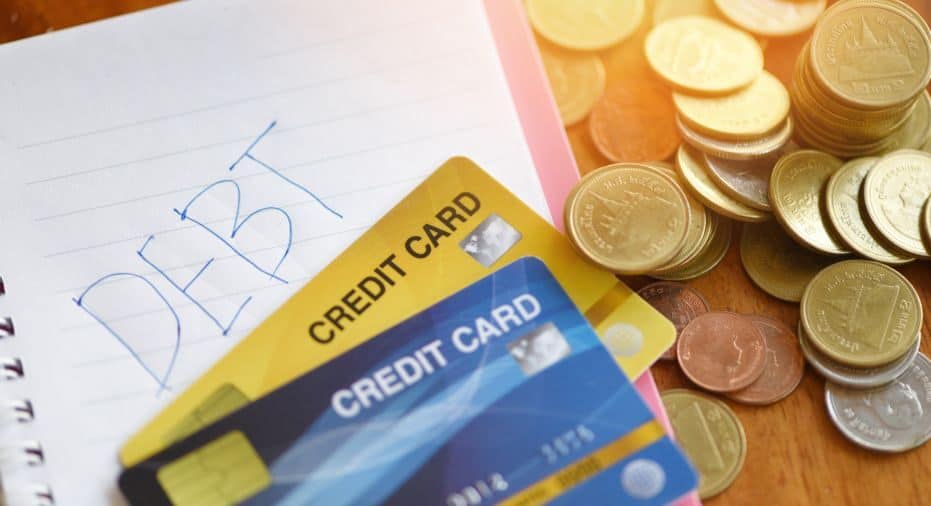
Americans love their credit cards, even as they continue to rack up plastic-related debt that hurts their personal finances.
So, how much does the average person have in credit card debt? According to data from the Federal Reserve, total consumer credit card debt hit $1.057 trillion in March 2019. Furthermore, the average credit card balance among U.S. adults stood at $6,194 in 2019, according to Experian.
With that much debt sinking your bank account, how can cardholders get straight with their rising credit card burden?
Debt settlement and negotiating with your creditors
One way out is through credit card debt negotiation. In many cases, cardholders sinking under the weight of credit card payments can find financial relief, with some consumers negotiating a settlement on the entire credit card they owe.
“Depending on the amount you owe and your payment status, negotiating debt with credit card companies may be a viable option,” said Ryan Luke, a financial coach at Arrest Your Debt, a consumer debt management platform. “If you’re late on payments, credit card companies are more likely to negotiate with you than if you go into default.”
Debt relief options
Depending on your financial status, cardholders can negotiate multiple costs linked to credit card ownership.
“Everything is negotiable with credit card companies, including interest rates, fees, and balance,” said Adam Selita, chief executive officer at the Debt Relief Company in New York, N.Y. “It all depends on your situation and the standing of your credit card accounts.”
Additionally, since the coronavirus pandemic, some creditors may allow for more leniency given the financial uncertainties many Americans are currently facing. “However, in order to get a principal reduction in your balance and reduce the amount you owe, you’ll usually need to be behind on your payments and experience serious financial hardship,” Selita said.
Negotiation tips to help pay off debt and save money
There are several effective ways to negotiate credit card debt down – or completely away. These strategies should be at the top of the debt negotiation list.
Be honest. The best way to negotiate credit card debt is to be clear and direct with credit card issuers and stand firm on your credit history, the credit card balance, and what you can afford to pay back.
“Explain your current situation and the financial hardships you’re facing,” Selita said. “The negotiating process requires a lot of back and forth on your part and like anything else, the more effort you put into it the more you will save.”
Be patient. “Never accept the first offer made by a credit card company,” Selita said. There’s a good reason to negotiate and playing the long game can drive your card debt down significantly.
Leverage the competition. If a cardholder has a good credit card repayment history but has accumulated a load of credit card debt, credit card companies will want to keep the business.
That’s where a little competitive leverage can help.
“Always bring information from a credit card provider’s competitor when looking to negotiate,” said Anna Barker, personal finance expert and founder of LogicalDollar.com, a personal financial advisory website. “Whether it’s with my existing bank or a potential new one, I’ve had success on multiple occasions at getting them to match or even beat the other offer.”
By politely threatening to take her business elsewhere, Barker said its “incredible” how fast they cut a special deal on credit terms. “I’ve gotten lower interest rates and no fees this way,” she said.
Contact a credit counselor to assist with debt relief
When a credit consumer accumulates so much credit card debt that personally negotiating the debt down isn’t feasible, it’s time to bring in some expert help.
“Heavy credit card debt can be one of the most difficult things to get under control,” Barker said. “Fortunately, there are some great resources out there for getting help.”
Barker said it’s a good idea to turn to a nonprofit financial counseling organization to get help.
“The National Foundation for Credit Counseling is a great place to start,” she said.
It also helps to reach out to a credit card company directly if your average credit debt grows too high.
“The best thing that you can do is to communicate with your credit card provider,” said Jeff Rose, a certified financial planner at Good Financial Cents in Nashville, Tenn. “Getting on the same page with them is one of the best things that can help you tackle your credit card debt.”
Avoiding a credit company when debt is mounting can and will only make things worse, Rose noted. “In many cases, if you communicate a willingness to try and set things right, card companies are willing to work with you,” he said.























